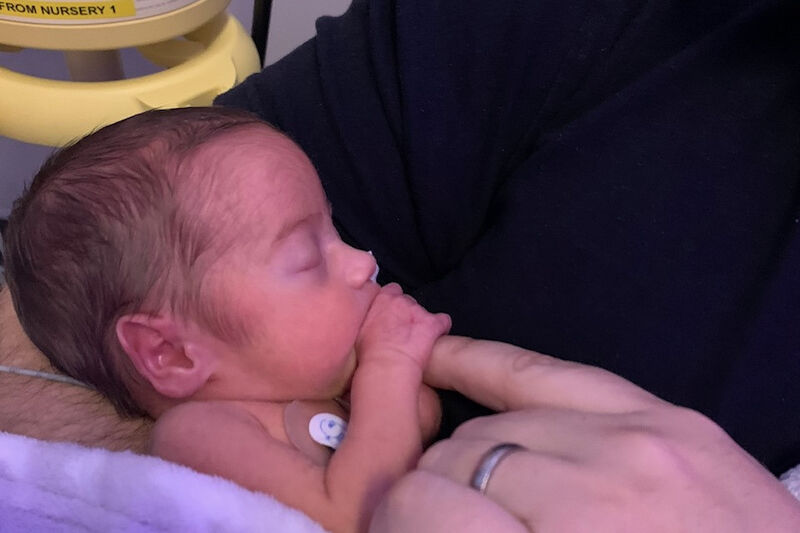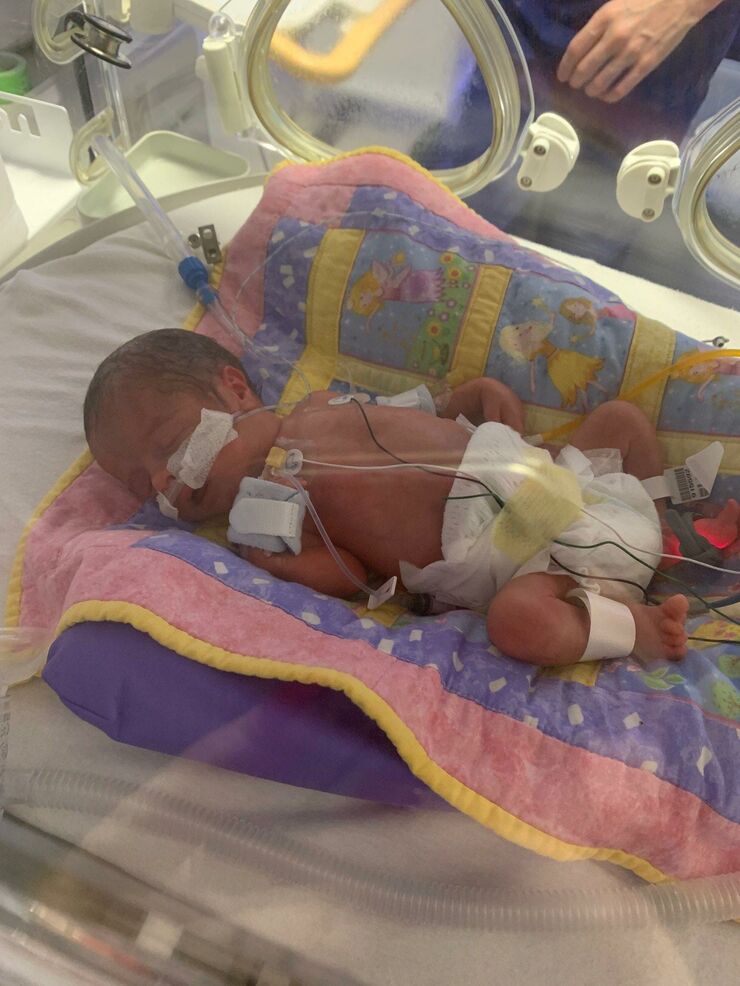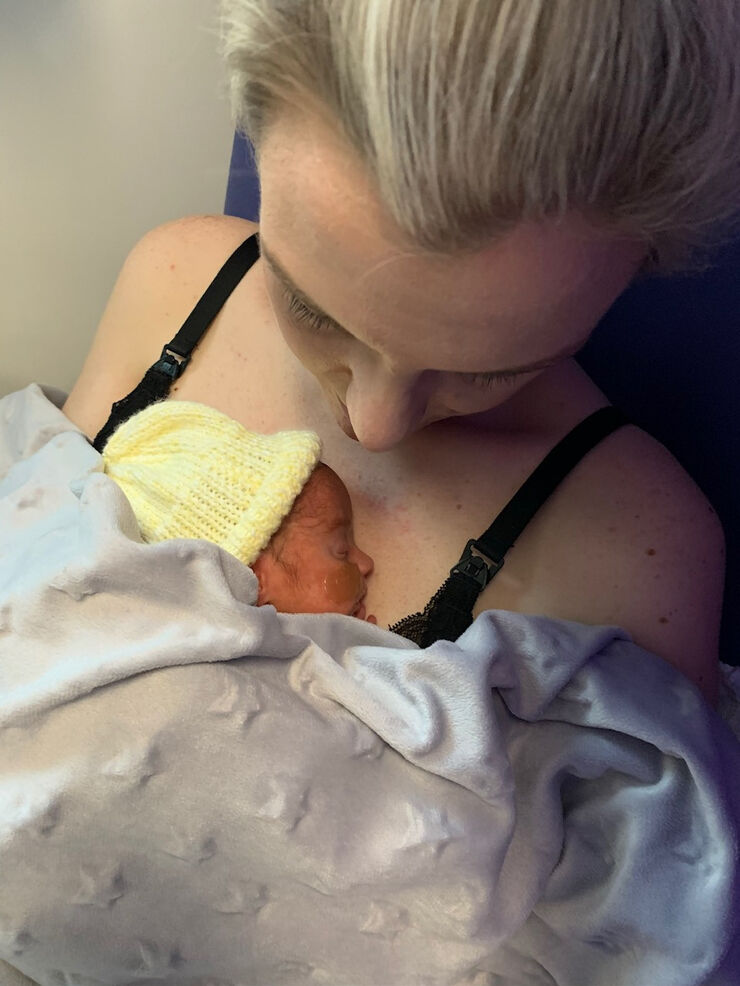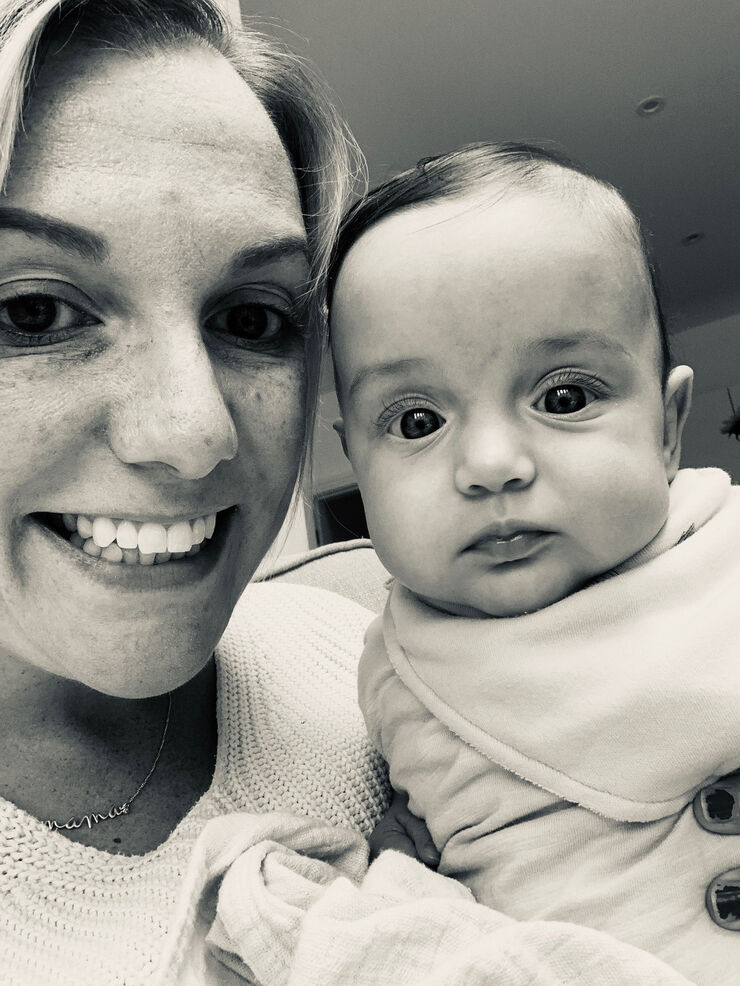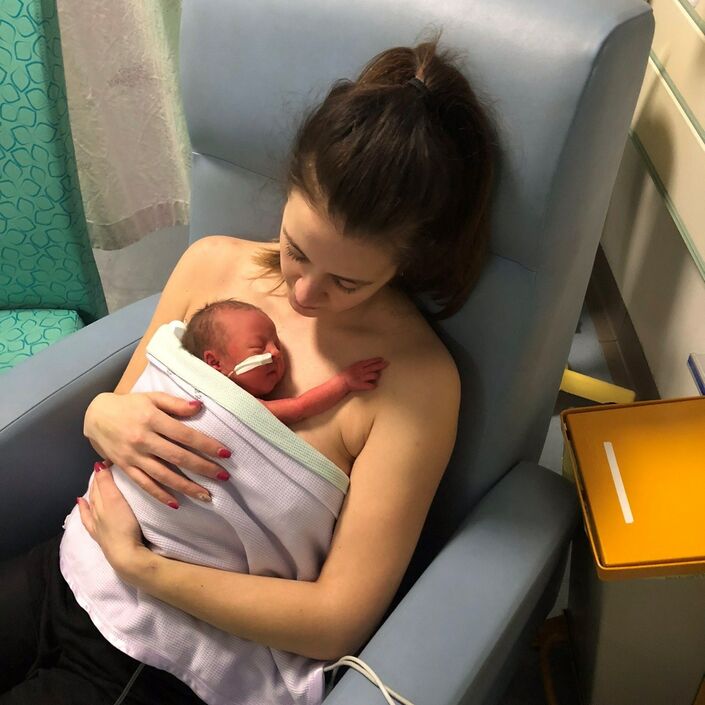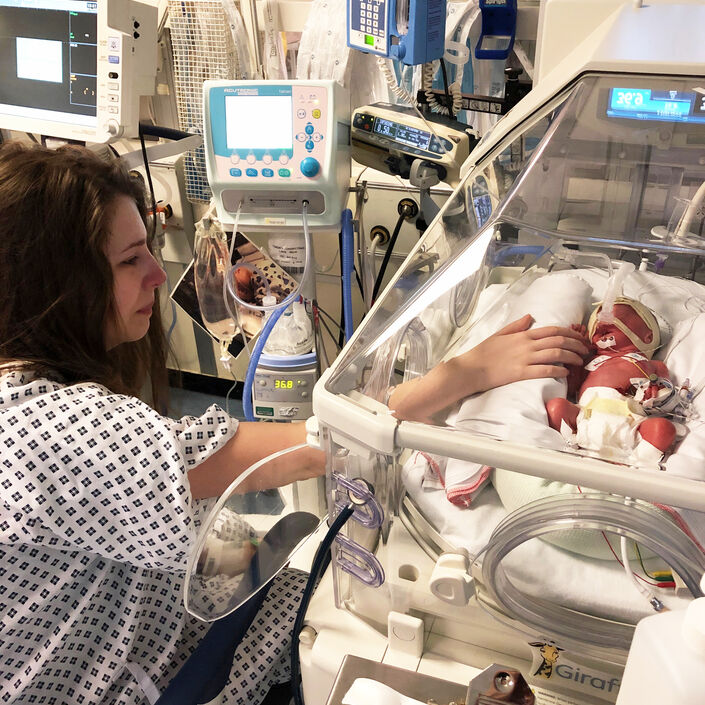When I first arrived on the neonatal unit, it was like something out of a TV drama. There were doctors and nurses everywhere and so many alarms and monitors with numbers I didn't understand. The room's blue haze was a constant reminder of where I was for the rest of my journey on the NICU.
While the room was full of bleeps and noises and staff busily deciding on what course of action to take, all I saw was my baby. 24 hours before, that baby was safely inside my tummy, kicking me so hard I thought she must be nearly full-sized. I wished I could feel that kick again so I could feel like my baby was safe and that I was still looking after her.
All I could think – all I had thought since my contractions started – was that this was my fault. For some reason I couldn’t keep my baby safe inside me. I couldn’t protect her from all the prodding and poking or from having to fight for her life.
The midwives, who were already referring to me as 'no longer being pregnant', put me in a side room so I wasn't surrounded by other mums happily with their newborns. Without my baby with me, I felt redundant.
I heard other babies, who seemed so much bigger, cry out and I longed to hear my daughter make the same noise. But she was too tiny, too exhausted and fighting far too hard for every breath to cry.
